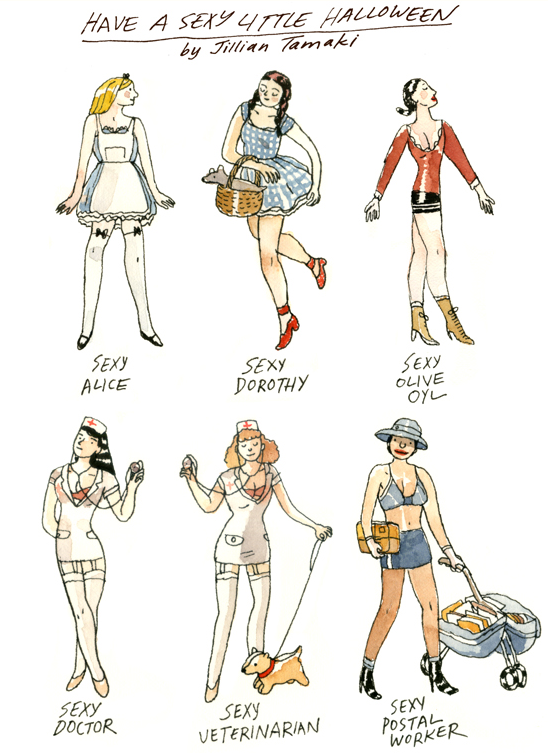Few ad campaigns make me as misanthropic as the breast cancer awareness ones I’ve been seeing at an especially high volume for the past month:
There’s also this video (NSFW).
I hate these campaigns for many reasons. First of all, they make breast cancer all about boobs. Yes, it has “breast” in the name, but reducing an illness as complex and life-shattering as breast cancer into a cutesy “save the boobies!” campaign seems callous and inappropriate.
I’m not sure everyone would even agree that the prospect of losing your breasts is the worst thing about breast cancer, and yet that’s what these campaigns almost universally target. It’s not the “boobies” or “ta-tas” that need to be saved–it’s the human beings who have breast cancer.
It’s even worse when the campaigns are created by and/or targeted at men and involve that hint-hint-nudge-nudge assumption that men should care about breast cancer because men love tits. Never mind that men can get breast cancer too, and never mind that men care about breast cancer not (just) because they care about boobs, but also because they care about their friends, girlfriends, wives, mothers, sisters, daughters, and etc. who might get breast cancer, or who already have.
Campaigns like these also completely ignore women who have chosen (or been forced to) undergo mastectomies. If breast cancer research and awareness is all about “saving the boobies,” does losing your breasts mean you’ve lost the fight?
This preoccupation with breasts is probably what inspires awful ads like this one by the Cancer Patients Aid Association, an Indian NGO:
The text at the bottom reads, “One out of every eight women develops breast cancer in her lifetime. Early detection helps recovery. Get yourself examined before it’s too late.” So there you have it. If you get a mastectomy, you’re “making yourself ugly.”
This is all to say nothing of Susan G. Komen for the Cure, the hypocrisy and reactionism of which should by now be well-known. (Incidentally, the former Komen executive who was responsible for that move was not content with merely that; she just had to write a book-length screed against Planned Parenthood, as well.) This unethical organization seems to be the beneficiary of most (if not all) of the sexualized ads I’ve seen. I still refuse to give them a single cent, which is difficult given how easy it is to accidentally pick up one of those pink-ribbon-branded products at the grocery store.
On the bright side, this is a great opportunity to explain what feminists mean when we prattle on about “objectification” and “sexualization,” which are closely related concepts that often (but not always) occur together. Objectification is the reduction of a person to their body parts (usually the sexual ones; hence the frequent co-occurence of objectification and sexualization). An advertisement that objectifies women might show, for instance, a single female leg in front of a flashy car, or a woman lying in a martini glass–literally like an object to be consumed. Sometimes men are objectified too, but that seems to be rarer. Ads that objectify people often don’t show their faces (or eyes), thus making them seem less like people and more like bodies.
Sexualization, meanwhile, is when a person (again, usually a woman) is represented in such a way as to arouse the viewer or otherwise connote sex when the actual purpose of the representation has nothing to do with sex at all. You wouldn’t call pornography “sexualization” because the purpose of pornography is to depict sexual acts and to be arousing. But when an advertisement designed to sell cars or alcohol–or solicit donations for breast cancer research–portrays women in a sexual way, that’s sexualization.
The objectification and sexualization of women in the media has a great deal of negative effects, both on an individual level–for the people who view them–and on a cultural level. Check out the work of Jean Kilbourne if that interests you.
However, I am not a marketing expert. If I were, and if I were charged with designing an ad campaign that elicits as much attention and donations for breast cancer research as possible, there’s a good chance I would feel compelled to create an ad like this, because there’s a good chance that this is the kind of ad that works best.
Hence the misanthropy I mentioned earlier. Marketing people know what they’re doing. If this is really the best way to get people to pay attention to this important cause, I would say that not using ads like these is even more unethical than using them–at least until we shift our culture enough that we don’t need them anymore. But that still means that we’re choosing the lesser of two evils. I would rather more money went to breast cancer research than less, but I would also rather we stopped reducing women to their erogenous zones in our media.
After all, I don’t agree with this rubbish that men are “programmed” or “hardwired” by biology to be obsessed with breasts, at least not to the level that our society seems to think they are. As I already discussed when I wrote about public breastfeeding, the sexualization of breasts is not universal to all cultures and time periods. Even if “sex sells,” breasts don’t necessarily have to always be part of “sex,” and I think it would be beneficial to our society if they were not.
For the record, whether straight men’s love of boobs is entirely biological or not, I don’t think there’s anything wrong with it, as long as it doesn’t infringe upon public policy or trivialize serious illnesses. Besides, you can totally be an awesome (male) feminist and a boob enthusiast at the same time.
Edit: Here’s a great article that basically makes my point for me.












